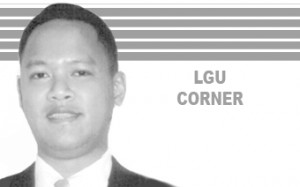 Bio ethics is the application of ethics in the field of medicine and healthcare.
Bio ethics is the application of ethics in the field of medicine and healthcare.
With recent developments in science and medicine, bio ethics has rapidly evolved which has spawned legal issues and controversies.
Laws, as legal minds observe is having a hard time catching up with the developments in bio ethics.
In many cases, laws are deficient and inadequate in resolving issues involving bio ethics.
In meeting legal challenges international lawyers always search the applicable law.
Then they apply the law to the specific facts of the case.
However, to understand these complicated legal issues, metaphors are used to justify cases.
Take the case of a comatose patient.
What should be done when a patient is comatose?
Sometimes culture and tradition that is heavily inclined to preserve life would impel family members to— as much as possible —-sustain the life.
But what if there are gargantuan expenses?
Metaphor: Compare the comatose patient to a ship where the captain was left behind in an island.
If the ship doesn’t have a captain, then the first officer would take charge of the ship.
Then apply the maritime laws.
In the case of a comatose patient, the captain of the body is absent, hence others step in to make the decisions.
Who makes the decisions? The doctors or the family members?
Just a plain example of the intricacies of bio ethics law.
Lets recall the true story of the Jodie and Mary case.
Jodie and Mary were conjoined twins (kambal tuko, or Siamese twins).
This case is discussed in many bio ethics fora.
Their real names are not Jodie and Mary, but Gracy and Rosie.
They had parents married in 1998 in Malta, Europe.
In late 1999 mother became pregnant and the ultra sound revealed she was having conjoined twins.
In August 2000 Jodie and Mary were born via C Section, with a combined weight of 6 kilograms.
The choices for treatment were elective separation, urgent separation, and permanent union.
Mary is only alive because she is connected to Jodie.
Josie without Mary would have a good chance to adulthood.
Mary’s twin was her ventilator.
Josie could survive alone, without Mary.
Jodie and Marie had to be separated ASAP.
If separated immediately, there was less than  ten percent chance that Jodie will die.
Unfortunately for Mary, it would be instant death.
For the option of urgent separation, they would have to wait for a sign of distress.
Upon happening, that would be the time to separate.
In such case, Jodie will only have 60 % survival.
Mary would die instantly.
Their parents were devout Catholics, and because of their belief, they wanted them both alive.
Doctors in the United Kingdom said if nothing is done, both will die in three to six months.
Doctors were worried they would be charged with second degree murder for doing nothing.
It’s a difficult choice.
Why did this reach the courts?
In the UK, if there is a conflict between doctors and the parents, doctors had to go to court.
Doctors were worried of legal repercussions against them, their careers and their liberties, if nothing was done.
In the UK, the courts can approach the case cold and  raw.
In 2005 the high court granted a declaration: Separation was in the best interest of both Jodie and Mary even if one suffers instant death.
The court’s language  was  harsh.
Both of them will have their bodily autonomy restored, the court said.
Without separation, everything is shared, it added.
Mary will suffer less for a lesser time.
Mary’s life is worth nothing to her, the court ruled.
Prolonging her life is seriously to her disadvantage, it said
Tests showed Mary’s brain was primitive. Lungs were absent.
Jodie had fully functioning heart, lung and brain.
Interestingly the court said: The surgical separation is an “omissionâ€, not an act.
When something is categorized as an omission (by legal fiction), it is not punishable.
This is a bit absurd because the operation would take 20 hours, yet it is considered an “omissionâ€.
The court ruled that surgical separation does not violate Mary’s bodily integrity.
Anyway, according to the court, Mary is just using her twin as a life support system.
Court: Mary’s ‘parasitic’ living sucks the lifeblood out of Jodie.
So the separation was carried out.
Jodie survived, and was immediately bottle fed.
Mary died after a few hours after separation.
Jodie is now fifteen. She is alive, normal, healthy.
Had this happened in the Philippines legal system, what do you think would have happened?
Would there have been a separation, considering the religious predisposition of many Filipinos?
Would Filipino judges have the same mindset as the judges in UK?
How would the case have been approached under Philippine legal setting?
This is just one of the issues confronting bio ethics law. Â (By Atty. Jay I. Dejaresco)
